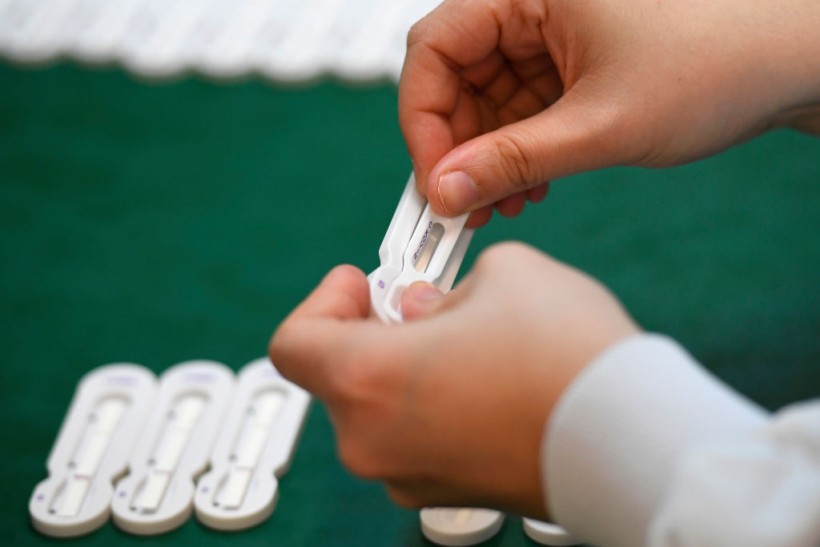In order to better understand why an antibiotic causes human hair cell death and permanent hearing loss, scientists at Indiana University School of Medicine are experimenting with new approaches, according to a report by SciTechDaily.
The researchers revealed how they discovered the autophagy mechanism in hair cells that is related to the long-term hearing loss brought on by the antibiotic class aminoglycosides.
The findings of the study were published in the journal Developmental Cell.
The researchers also developed one of the first model systems that are resistant to the hearing loss brought on by aminoglycosides.

(Photo : DAMIEN MEYER/AFP via Getty Images)
An employee of French innovative biotech company NG Biotech manufactures "Carba" tests, an antibiotic resistance test in Guipry, western France on April 6, 2020.
Hearing Loss by Medication
Ototoxicity, or hearing loss caused by medication, is one of the main reasons why people lose their hearing. More than 48 million people in the US alone suffer from hearing loss, as per SciTechDaily.
According to Bo Zhao, Ph.D., assistant professor of otolaryngology, head and neck surgery, their work indicates a number of possible treatment targets for preventing hearing loss brought on by aminoglycosides.
Aminoglycosides have been used to treat severe infections for more than a century. Due to its low cost and low incidence of antibiotic resistance, the medication serves as a first-line treatment for life-damaging infections.
However, it has been demonstrated that in 20-47% of patients, it causes the death of hair cells and permanent hearing loss.
It is important to note that hair cells in the inner ear are responsible for receiving sounds. Once they're damaged or dead, a person will be unable to hear sounds.
Zhao employed biochemical screening to find proteins present in hair cells since his lab studies are focused on the molecular pathways causing hearing loss. They initially found that the protein RIPOR2, which is necessary for auditory perception, is coupled with aminoglycosides.
The team hypothesizes that RIPOR2 is necessary for aminoglycoside-induced hair cell death because aminoglycosides particularly cause a fast localization change of RIPOR2 in hair cells.
Read Also: Researchers Develop Machine Learning Prescriptions and Reduce 'Antibiotic Resistance' By Half
Experimenting With a Model
In the lab, the researchers created a model with normal hearing but drastically reduced RIPOR2 expression. Zhao claimed that after receiving treatment with aminoglycosides, the model neither had severe hair cell death nor hearing loss.
"We then discovered RIPOR2 regulates the autophagy pathway in hair cells. Knowing this, we developed other laboratory models without the expression of several key autophagy proteins that did not exhibit hair cell death or hearing loss when treated with the antibiotic," Jinan Li, Ph.D., a postdoctoral fellow in the Zhao lab and first author of the paper, said in a statement.
The IU School of Medicine and the National Institutes of Health provided funding for the study. According to the authors, future research may employ the proteins discovered in this study as drug targets to combat hearing loss caused by aminoglycosides.
Related Article: A New Antibiotic, WLBU2, Has Been Developed That Could Fight Ventilator-Associated Lung Infections
This article is owned by Tech Times
Written by Joaquin Victor Tacla








